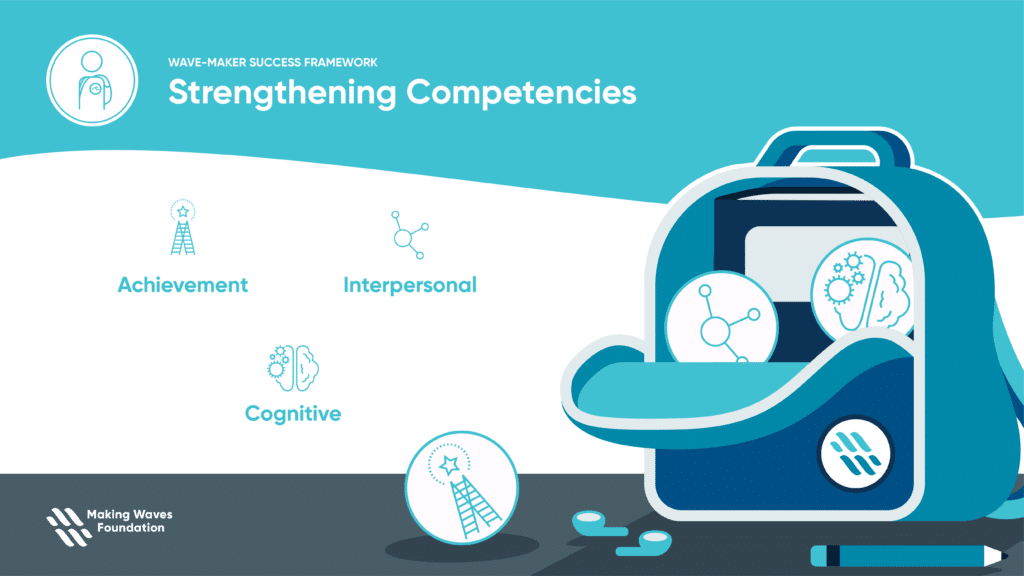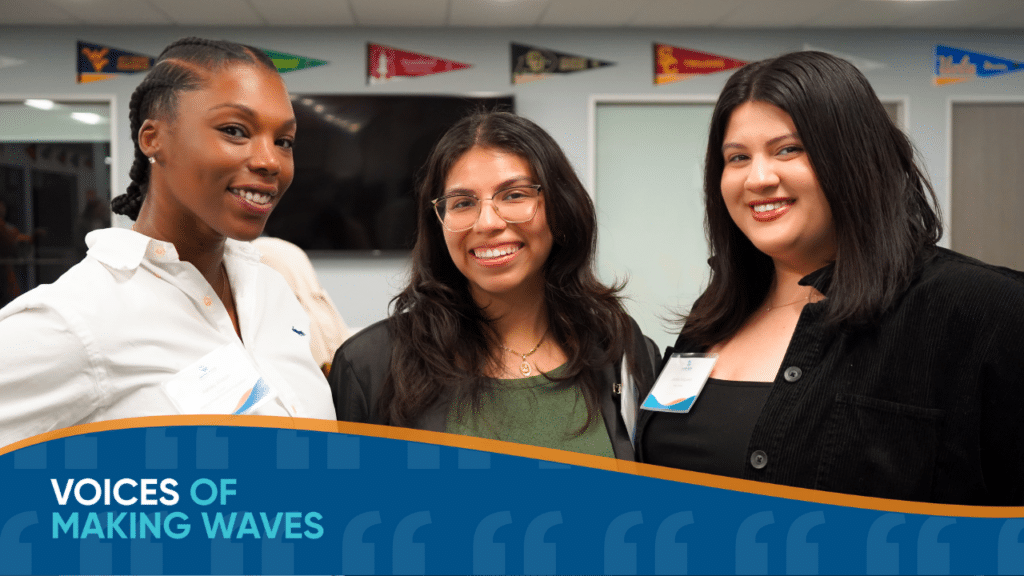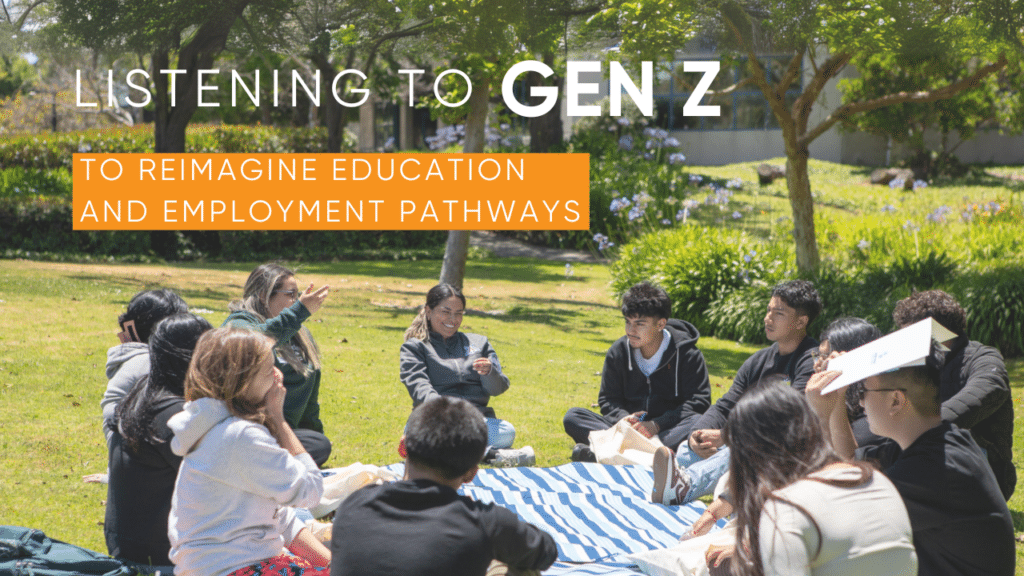
Strengthening Competencies: Interpersonal

For productive and supportive relationships
Collaboration
Working with others, including people with different backgrounds, values, points of view
You’re probably used to working on projects by yourself. But what you might not realize is that working with others can actually be beneficial. When you work with others, you get the opportunity to learn new skills, gain different perspectives, and build relationships.
1. You learn new skills
When you work with others, you have the opportunity to learn new skills. For example, if you’re working on a project with someone who is experienced in graphic design, you might be able to learn some tips and tricks from them. Or, if you’re working with someone who is good at public speaking, you might be able to improve your own public speaking skills.
2. You gain different perspectives
Another benefit of collaboration is that you gain different perspectives. When you work alone, it’s easy to get stuck in your own way of thinking. But when you work with others, you’re exposed to different ideas and ways of doing things. This can help you see things in a new light and come up with better solutions to problems.
3. You build relationships
Finally, collaboration is a great way to build relationships. When you work with others, you have the chance to get to know them better and build trust. These relationships can be beneficial both professionally and personally.
As you can see, there are many benefits to collaboration. So next time you’re given a project to work on, don’t be afraid to reach out to others for help. You might just be surprised at what you can accomplish!
How to improve collaboration
Collaboration is a process of working with others to create something. It involves sharing ideas, compromising, and working together to reach a common goal. Whether you’re collaborating with classmates on a project or colleagues at work, it’s important to be able to effectively communicate and work together. Here are a few tips on how to improve your collaboration skills:
1. Be open to others’ ideas
In order to collaborate effectively, you need to be open to hearing and considering others’ ideas. Just because an idea is different from your own doesn’t mean that it’s not worth considering. In fact, some of the best solutions come from thinking outside the box. So, next time you’re in a meeting or brainstorming session, really listen to what others have to say and be open to their ideas.
2. Communicate clearly
It’s also important that you communicate clearly when you’re collaborating with others. This means being clear about what you want and what you don’t want. It also means being respectful of others’ time and energy by being organized and staying on topic. When everyone is on the same page, it’s easier to work together towards a common goal.
3. Compromise
There will be times when you won’t agree with everyone else in the group. That’s okay! In fact, it’s expected. The key is to be willing to compromise. This doesn’t mean that you have to give in all the time or that your ideas are always second best. But it does mean that you should be willing to meet in the middle and find a solution that everyone can agree on. After all, collaboration is all about working together.
Collaboration is a vital skill in today’s world. Whether you’re working on a school project or at your job, being able to effectively communicate and work with others is essential.
By being open to others’ ideas, communicating clearly, and being willing to compromise, you can improve your collaboration skills and make working with others more enjoyable for everyone involved!
Communication
The ability to synthesize and share information in a way that is received by the audience
Communication is a critical life skill that enables us to interact and connect with others. It is the ability to share information between people so that it is understood by the receiver. Good communication involves both speaking and listening, as well as nonverbal cues such as body language and facial expressions.
There are many reasons why communication is important. For one, effective communication can help to build strong relationships. When we communicate effectively, we are able to express our needs and feelings, as well as understand the needs and feelings of others. This understanding can help to foster empathy and compassion, two important ingredients in any healthy relationship.
In addition, communication is essential for achieving our goals in life. Whether we are trying to persuade someone to see our point of view, negotiate a better salary, or simply get our ideas across in a presentation, our ability to communicate will play a big role in determining our success.
Finally, communication is a key part of our personal development. Through communication, we are able to gain feedback from others and learn about ourselves. We can also use communication to practice problem-solving and conflict resolution skills.
Tips for improving communication skills
Fortunately, communication skills can be learned and improved with practice. Here are some tips for improving your communication skills:
1. Pay attention to your body language
Your body language—the way you carry yourself and the expressions on your face—can say just as much as your words do. If you want to come across as confident, open, and approachable, make sure your body language reflects those qualities.
2. Listen more than you talk
In order to be a good communicator, you need to be a good listener. Pay attention to what the other person is saying and try to understand their perspective. Only then will you be able to respond in a way that is helpful and relevant.
3. Avoid assumptions
It’s easy to make assumptions about what someone means when they say something or how they will react to what you say. However, these assumptions can often lead to misunderstandings. If you’re not sure what someone means, ask them directly instead of making assumptions.
4. Choose your words carefully
The words you choose can have a big impact on how your message is received by the other person. If you want to come across as calm and collected, use positive or neutral words instead of negative ones. And if you’re trying to persuade someone of something, use persuasive language rather than aggressive language that could put them on the defensive.
Communication skills are important because they enable us to interact with others, build relationships, achieve our goals, and develop as individuals. If you want to improve your communication skills, start by paying attention to your body language, listening more than you talk, avoiding assumptions, and choosing your words carefully. With practice, you will be able hone these skills and become a more effective communicator.
Interdependence
Having the drive to pursue goals and the wisdom to ask for support when I need it
We all know the saying, “If you want something done right, do it yourself.” And while there’s a lot of truth to that, there’s also a lot to be said for knowing when to ask for help. Pursuing goals is tough enough on its own, but when you add the stress of trying to do everything alone, it can be downright overwhelming. That’s why it’s so important to have the wisdom to know when to ask for help.
Learn from others
There are a lot of reasons why asking for help is important. For one, it allows you to tap into the expertise of others who may be better equipped to handle certain tasks than you are. It also shows that you’re willing to work as part of a team and that you’re not afraid to delegate responsibility.
Decide what is best
Asking for help also demonstrates your humility. It takes a lot of confidence to admit that you need assistance, and people respect others who are able to do that. Furthermore, asking for help is a sign of maturity. It shows that you’re able to take an objective look at your situation and make the best decision for your needs – even if that means admitting that you can’t do everything on your own.
Spread the workload
Finally, asking for help can relieve some of the pressure and stress that come with pursuing goals. When we try to do everything ourselves, we often put unnecessary pressure on ourselves which can lead to burnout. But when we delegate tasks and ask others for assistance, we spread out the workload and make it more manageable – which ultimately makes us more likely to succeed.
The next time you’re feeling overwhelmed by your goals, remember that it’s okay to ask for help. In fact, it’s more than okay – it’s essential! Asking for help shows that you’re confident and humble enough to admit when you need assistance, and it’s a sign of strength, not weakness. So don’t be afraid to reach out and ask for the support you need in order to achieve success.
Leadership
Guiding and assisting a group in meeting goals
High school is a time of transition. You’re no longer a child, but you’re not quite an adult either. You’re preparing for college and the real world, and part of that preparation is learning how to be a leader. Whether you’re leading a study group or captain of the football team, developing your leadership skills now will pay off later.
Here are three leadership skills every high school student needs:
1. Communication
One of the most important leadership skills is communication. A good leader is someone who can communicate effectively, both verbally and written. They understand the importance of clear and concise communication in order to get their point across and rally people to their cause. As a leader, you need to be able to articulate your vision and inspire others.
2. Conflict resolution
Another key leadership skill is conflict resolution. Leaders need to be able to see both sides of every issue and find common ground between them. They also need to be able to mediate disagreements and come up with creative solutions that everyone can agree on. This skill will come in handy both in your personal life and your professional career.
3. Time management
An effective leader knows how to manage their time wisely. They understand that there’s only so much time in a day, and they need to use it wisely in order to achieve their goals. They know when to delegate tasks and when to take care of things themselves. Most importantly, they know how to prioritize their time so that they can get the most important things done first.
Leadership is an important skill for success in any field, but it’s especially important for high school students who are preparing for college and the real world. If you’re looking to develop your leadership skills, start with these three essential skills: communication, conflict resolution, and time management. Mastering these skills now will pay off in your academic career and beyond!
Networking
The ability to connect with other people
Networking. It’s a term that gets thrown around a lot, especially in the business world. But what exactly is networking? And why is it so important?
At its core, networking is the ability to connect with other people. It’s about building relationships and connecting with people who can help you achieve your goals. And it’s not just something that adults do – networking is something that everyone can (and should) do, no matter what stage of life you’re in.
As a high school student, you might not think that networking is something you need to worry about. But the truth is, networking can be incredibly beneficial for you, both now and in the future.
Here are just a few reasons why you should start networking as a high school student:
1. It can help you get into college
If you’re looking to go to college, networking can be a great way to get your foot in the door. Talk to your parents, teachers, and other adults you know and see if they know anyone who works at the college you’re interested in. They may be able to put in a good word for you or even help you get an interview.
2. It can help you find a job after graduation
When it comes time to look for a job after graduation, networking will be key. Even if you don’t have any connections at the company you want to work for, someone you know might know someone who does. So don’t be afraid to reach out and ask for help – it could lead to your dream job!
3. It can help you make friends and find mentors
Friendships and mentorship relationships are some of the most valuable connections you can make – and they often start with networking. As you start meeting new people and building relationships, look for people who share your interests and who are doing things that you want to do. These people can become friends, mentors, and even business partners down the road.
Networking is an important skill that everyone should learn how to do – and as a high school student, there’s no better time to start than now! So start reaching out and building relationships – you never know where they might lead.
Self-awareness
Understanding your feelings and using them wisely
We’ve all been there before. You’re in a situation and you’re not quite sure how you feel about it. Your mind is racing and you’re trying to figure out what the right thing to do is. But without understanding your feelings, it’s impossible to make a decision. That’s why self-awareness is so important.
What is self-awareness?
Self-awareness is the ability to understand your own emotions and how they affect your thoughts and behavior. It’s about being in tune with how you’re feeling in the moment and recognizing when those feelings might be impacting your decision-making.
Why is self-awareness important?
Self-awareness is important because it allows you to regulate your emotions. When you’re aware of how you’re feeling, you can take steps to control your emotions instead of letting them control you.
For example, let’s say you’re in a meeting at work and someone says something that rubs you the wrong way. If you’re not aware of how you’re feeling, you might react emotionally and say something that you regret. But if you’re aware of your emotions, you can take a step back, calm yourself down, and respond in a way that’s more constructive.
There are a few things you can do to become more self-aware:
1. Pay attention to your body language
Our bodies give us clues about how we’re feeling, even when we don’t realize it. If you notice yourself tensing up or crossing your arms when someone speaks, that’s a clue that you might be feeling defensive.
2. Check in with yourself regularly
Throughout the day, take a few moments to check in with yourself and see how you’re feeling. When you get home from work, for example, take a few minutes to write down how your day went and what kind of emotions you were feeling throughout the day.
3. Be honest with yourself
It can be difficult to admit when we’re feeling something negative like anger or jealousy, but it’s important to be honest with ourselves if we want to become more self-aware. Acknowledge those feelings instead of pushing them down or pretending they don’t exist.
Self-awareness is an important life skill that everyone should strive to develop. By understanding our emotions and taking steps to control them, we can make better decisions, both in our personal and professional lives. Pay attention to your body language, check in with yourself regularly, and be honest with yourself about your emotions—these are all great ways to start becoming more self-aware!
Co-authored with AI
Making Waves Education Foundation generated this text in part with artificial intelligence. Content has been reviewed, edited, and revised to our organization’s liking and we take ultimate responsibility for the content of this publication.
About Making Waves Education Foundation
At Making Waves, we are committed to educational equity. Making Waves Education Foundation is a Bay Area nonprofit that supports Making Waves Academy – a public charter school with more than 1,100 5th through 12th grade students – and leads college and career programming with more than 430 college students.
Knowing the opportunities that come with a college degree, we partner with historically underrepresented and underserved students to help make college affordable and graduation attainable. Centering the journeys of our students, our personalized approach includes college and career coaching, scholarships, and financial planning.
Our alumni network includes more than 730 college graduates, who earn their degrees and land jobs at more than twice the rate of their first-generation, low-income peers, with 85% graduating debt-free.
Related News and Resources
More College and Career Resources
Co-authored with AI
Making Waves Education Foundation generated this text in part with artificial intelligence. Content has been reviewed, edited, and revised to our organization’s liking and we take ultimate responsibility for the content of this publication.
About Making Waves Education Foundation
At Making Waves, we are committed to educational equity. Making Waves Education Foundation is a Bay Area nonprofit that supports Making Waves Academy – a public charter school with more than 1,100 5th through 12th grade students – and leads college and career programming with more than 430 college students.
Knowing the opportunities that come with a college degree, we partner with historically underrepresented and underserved students to help make college affordable and graduation attainable. Centering the journeys of our students, our personalized approach includes college and career coaching, scholarships, and financial planning.
Our alumni network includes more than 730 college graduates, who earn their degrees and land jobs at more than twice the rate of their first-generation, low-income peers, with 85% graduating debt-free.







